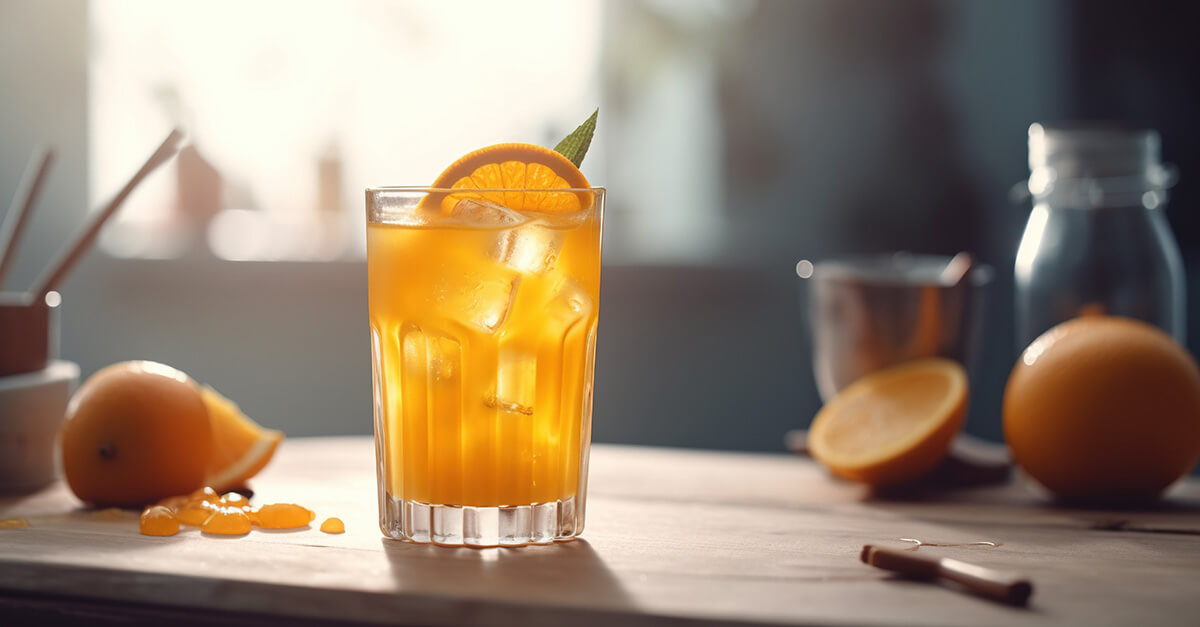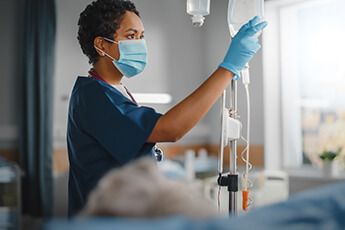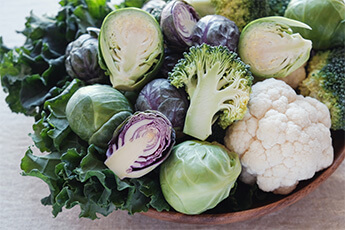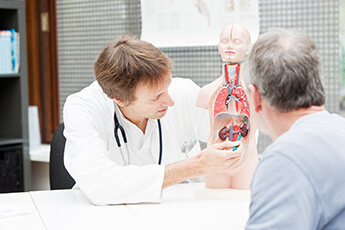Nephrectomy diet: What to eat before and after kidney removal


Kidney removal (nephrectomy) is a treatment that's sometimes used for kidney cancer and other types of kidney disease. When patients undergo a partial or full nephrectomy, doctors may advise dietary changes before or after the surgery.
In this guide, you'll learn about the relationship between diet and kidney removal, including common recommendations for what to eat before a nephrectomy, what to eat after kidney removal, foods to avoid, answers to frequently asked questions, and more.
In the Inspire Kidney Cancer Survivors Community, members share their personal experiences of living with kidney cancer or related cancers and how to find support. This content should not be used as a substitute for professional medical advice, diagnosis, or treatment. Whether or not you have a kidney cancer diagnosis, it’s wise to speak with your doctor or a dietitian before making significant changes to your diet.
What should I eat before a nephrectomy?
If you've got a nephrectomy (kidney removal) surgery scheduled, your doctor may advise dietary preparation to help improve your chances of success. Also, for patients living with impaired kidney function caused by cancer or other diseases, limiting foods that tax the kidneys can help improve the prognosis of these conditions.
In preparation for laparoscopic nephrectomy, which uses a small device equipped with a camera to remove tissue from the kidney, patients will sometimes receive strong laxatives for mechanical bowel preparation.
The purpose of mechanical bowel preparation is to remove fecal matter from the colon, which may reduce the risk of infections and other complications from surgery. Laxatives used for this purpose include polyethylene glycol (PEG) and magnesium citrate.
In the 24 hours preceding surgery, patients may also be advised to consume a diet that consists exclusively of clear liquids.
A clear liquid diet is a restrictive, temporary diet that only allows liquids that are transparent at room temperature. Items that may be allowed include water, ice, fruit juices with the pulp removed, sports drinks, carbonated drinks, gelatin, tea, weak coffee, some soup broths, and clear ice pops.
A nephrectomy is a major surgery that removes some or all tissue from a patient's kidney. The most common reason for a nephrectomy is a tumor, usually caused by kidney cancer that has not metastasized (spread to other parts of the body). Learn what to expect following nephrectomy surgery for kidney cancer, with statistics, side effects, typical recovery times, and stories from real patients.
Do you have to fast before kidney surgery?
Most patients will receive strict orders to consume no food or drink after midnight on the day of their kidney surgery. Reasons for pre-surgery fasting include avoiding accumulation of fecal matter in the bowel and reducing the risk of aspiration (inhalation of vomited food) that may occur during anesthesia.
The evidence in favor of routine, prolonged pre-surgery fasting is mixed, and some researchers are now calling this practice into question. For example, it's not uncommon for surgeries to be delayed or rescheduled, which can unintentionally prolong the time patients spend fasting, leading to discomfort and other issues.
One recent study also found that when patients are dehydrated going into kidney surgery, the risk of kidney injury is significantly increased.
As an alternative to prolonged pre-surgical fasts, some doctors have proposed that a two-hour fast immediately before surgery may be sufficient to prevent aspiration. However, the evidence thus far is inconclusive.
If you're concerned about being uncomfortable or dehydrated due to prolonged fasting or the possibility of having your surgery delayed or rescheduled, be sure to discuss your concerns with your medical team as soon as possible.
What should you eat after kidney removal?
Current guidelines suggest that you can go back to eating a normal diet after nephrectomy or other kidney surgery unless advised otherwise by your physician. The guidelines also recommend drinking four to eight glasses of water per day during recovery, unless you're instructed to do otherwise.
If you have an upset stomach or indigestion, you may benefit from eating soft, bland, low-fat foods such as plain rice, baked or broiled chicken, toast, and yogurt.
And if you experience irregular bowel movements, avoid straining. Taking a daily fiber supplement may help with bowel regularity.
If you experience constipation for more than one to two days, ask your doctor about taking a gentle laxative.
Dietary changes to preserve kidney function after a nephrectomy
Apart from the post-nephrectomy recovery period, evidence suggests that certain dietary changes can help maintain kidney function in kidney cancer patients as well as other patients who are living with one kidney after kidney removal.
Changing your diet after a nephrectomy to achieve a better prognosis involves making permanent, lifelong changes to help prevent kidney failure or avoid the recurrence of kidney cancer.
Foods and dietary habits that appear to support kidney function and reduce the risk of kidney cancer include the following:
vegetables (especially cruciferous vegetables like broccoli), fruits, and other plant-based foods that contain flavonoids (antioxidants), including natural spices and culinary herbs
foods that are high in omega-3 fats, including wild-caught seafood
healthy fats like olive oil
foods naturally high in micronutrients (vitamins and minerals), especially foods rich in vitamin C
moderate alcohol consumption
Studies also indicate that eating a healthy diet with plenty of fruits, vegetables, fiber, and healthy fats can improve survival in cancer patients.
Additionally, renal cancer and other forms of cancer can result in cachexia (weight loss and muscle wasting), so it's important to consume adequate calories to help prevent these issues.
Finally, a study of over 1,200 chronic kidney disease (CKD) patients found that on average, 1-2 liters of water per day (approximately 32-64 ounces) was most effective for preserving renal function. Consuming too little or too much water was associated with impaired kidney function.
If you aren't sure how much water to consume each day, your medical team can help you determine the best strategy to stay hydrated without taxing your kidneys.
Foods to avoid after kidney removal
The kidneys are responsible for removing waste and excess fluid from the bloodstream and maintaining a healthy balance of electrolytes such as sodium, potassium, calcium, and phosphorus.
Avoiding certain foods and ingredients can help preserve kidney function, which is a very important goal for patients living with a single kidney.
If your have impaired renal function or chronic kidney disease, or you're living with one kidney after kidney removal surgery, your doctor may recommend the following dietary changes:
reduced protein intake
lower sodium intake
less phosphorus consumption
decreased potassium intake
Your doctor or a dietitian can help you make the necessary dietary adjustments to preserve your kidney function and still receive adequate nutrition.
Also, it's a good idea for patients with a prior diagnosis of kidney cancer to limit their intake of foods that are associated with renal cancer risk, such as processed foods high in saturated fats, sugary foods, starches, simple carbohydrates, charred or burnt meat, and processed meat products with nitrates or nitrites.
Frequently asked questions about nephrectomy and diet
What is bowel preparation for kidney removal?
Bowel preparation is a technique that doctors sometimes recommend to reduce complications from laparoscopic nephrectomy procedures, particularly those performed intraperitoneally (entering through the abdominal cavity). Patients receive strong laxatives like polyethylene glycol (PEG) or magnesium citrate to remove fecal matter from the colon.
Along with laxatives, your physician may also recommend a clear liquid diet for 24 hours before surgery, consisting exclusively of liquids that are transparent at room temperature. A clear liquid diet may include water, ice, fruit juices minus the pulp, sports drinks, carbonated drinks, gelatin, tea, weak coffee, some broths, and clear ice pops.
What foods should you avoid with one kidney?
Doctors sometimes advise patients who are living with one kidney to make certain dietary changes to help preserve kidney function. You may need to reduce your intake of protein, sodium, phosphorus, and potassium, all of which can tax the kidney.
What is the kidney cancer diet?
Some foods may increase the risk or recurrence of kidney cancer. If you've received a diagnosis of kidney cancer, it may be wise to limit or avoid foods that are associated with renal cancer, including processed foods, sugary foods, starches, simple carbohydrates, charred or burnt meat, and processed meat products.
If you have kidney cancer, your kidney function may be impaired due to tumors, kidney removal, or other cancer treatments. In these cases, doctors usually recommend certain dietary changes to help prevent kidney failure. Learn more about the relationship between your diet and kidney cancer prognosis.




